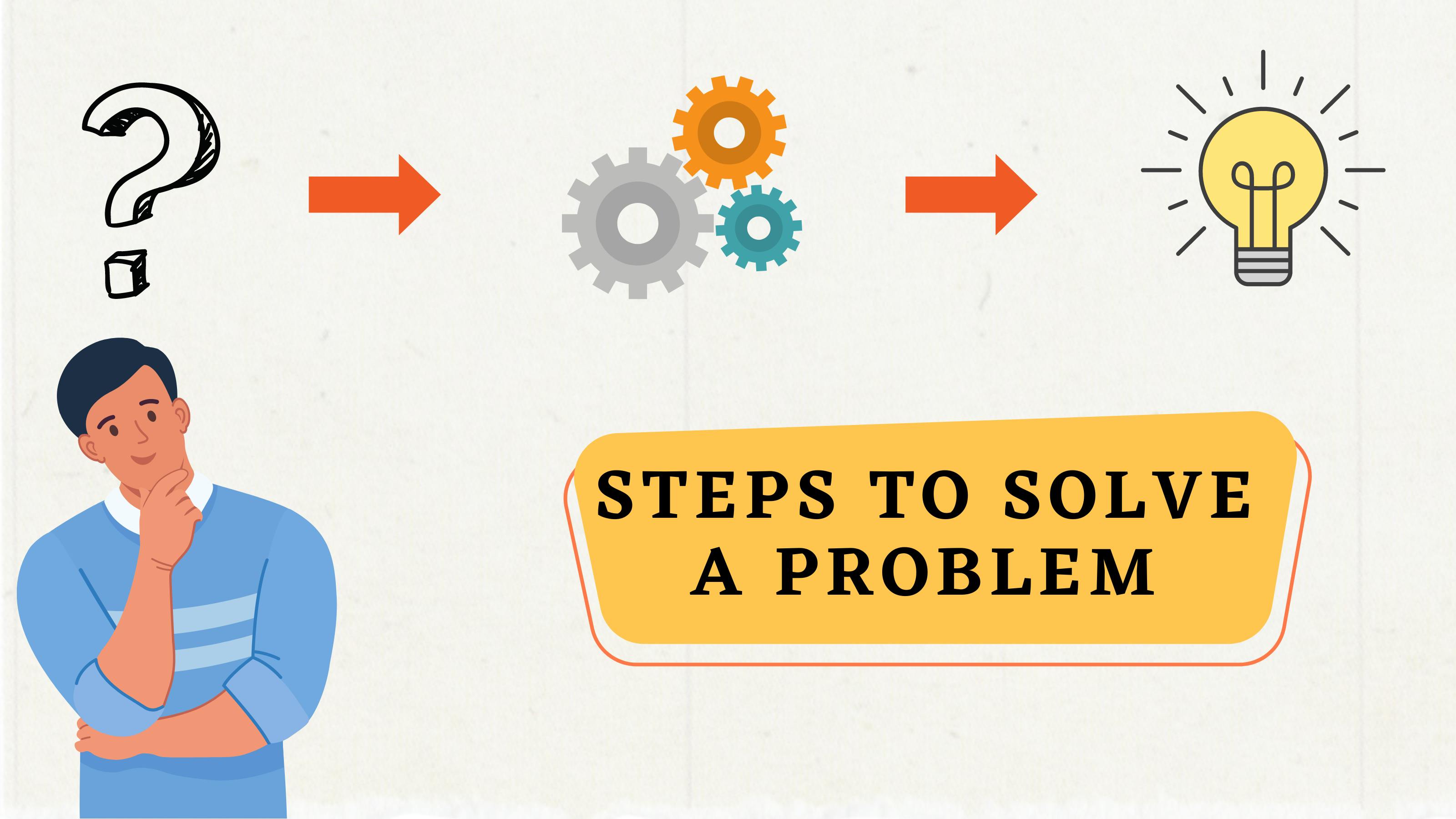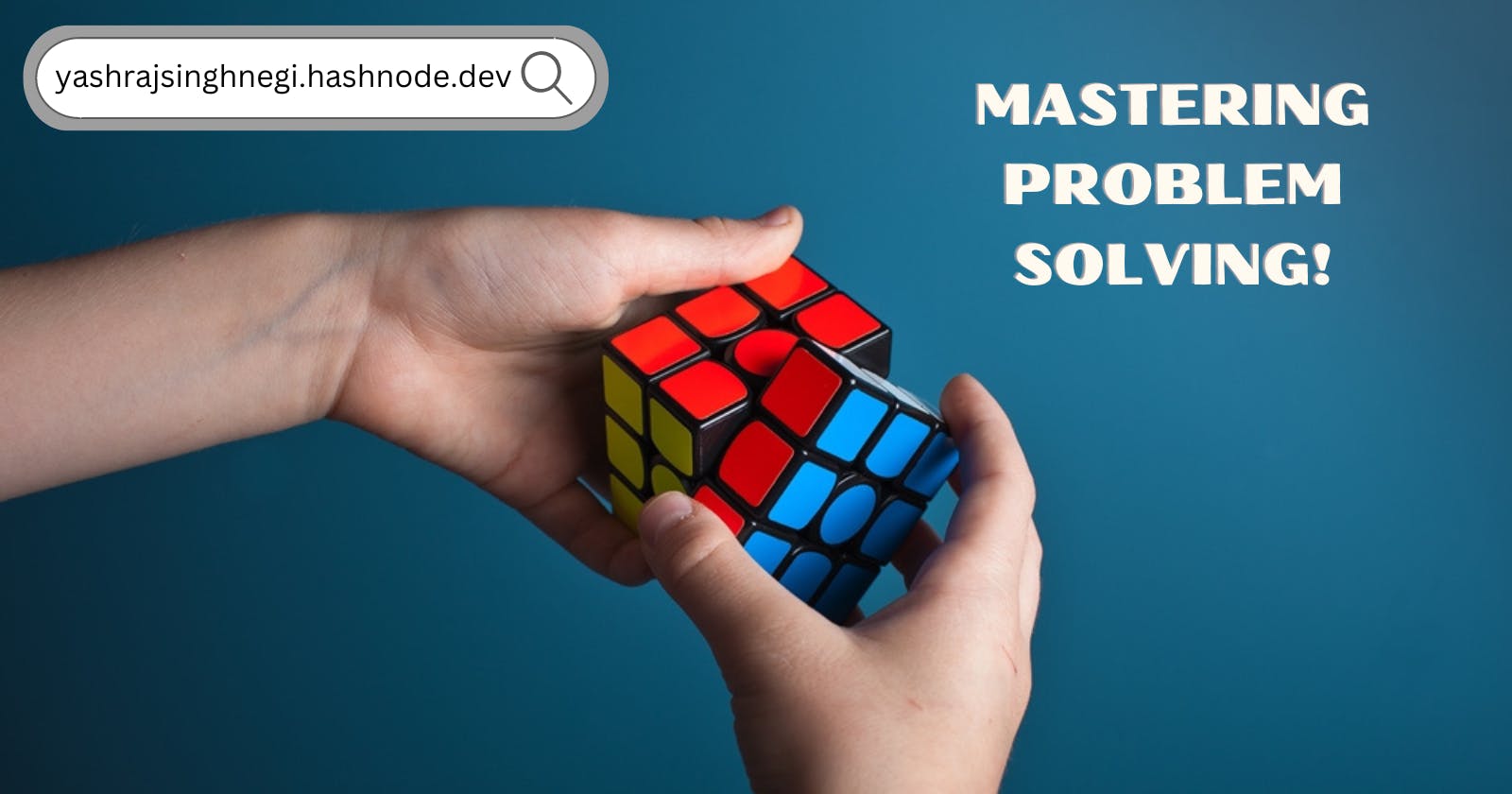Mastering Problem-Solving: Hands-on Experience for Programmers and Professionals
How to Approach Problem-Solving as a Programmer: A Comprehensive Guide
Introduction
Hey readers,
Today in this article I am going to talk about how problem-solving is an essential skill for programmers, as well as in everyday life. Whether you're dealing with a difficult decision, a complex project or a challenging interpersonal relationship, the ability to think critically and develop effective solutions is key. So, why do we neglect to learn and hone this skill?
We can break it down into three parts:
identifying the problem
breaking it down into smaller, easy-to-handle problems
and developing and executing a plan to solve it.

Step 1: Identify the problem
During my high school days, the teachers always asked me to start my solution by writing down the given hints in the question. "Half the solution lies in the question", says one of my teachers. I found this statement very true as it initiates the process of problem-solving very easily and also gives us an idea for the next steps. While solving programming questions we must think similarly. When a question comes we must check just two things - first, what it asks for and second, what it will give as a result. If a sample output is given then we must carefully understand it.
Let's take an example of a very famous programming problem "FizzBuzz". Many of you might have heard about this problem but don't worry if you've not. So, FizzBuzz is a problem in which you need to write a program that iterates the integers from 1 to 50. For multiples of three, it prints "Fizz" instead of the number and for multiples of five it prints "Buzz". For numbers that are multiples of three and five, it prints "FizzBuzz".
Sample Output looks like this,
1
2
Fizz
4
Buzz
Fizz
7
8
Fizz
Buzz
11
Fizz
13
14
FizzBuzz
Here identifying the problem means identifying that
First, it takes a number
Second, it iterates through numbers using a loop
Lastly, It does its operation as 'given' in the question and generates an output.
Step 2: Breaking down the problem into smaller, easy-to-handle problems
Now as we know how to identify the problem correctly we move on to step 2 and which is breaking down the problem. A programming question or a problem never uses a single concept to get solved. So after identifying what needs to get solved we must note down the required concepts needed and their rough idea of how to convert them into code.
Continuing our example of FizzBuzz, now we need to do is
- First, running a for loop to iterate our integer value
for num in range(15):
//do something
- Second, structuring the if...else... statements
if num % 5 == 0:
print("buzz")
- Lastly, use the operators correctly between if...else... statements.
if num % 3 == 0 and num % 5 == 0:
print("fizzbuzz")
Step 3: Bring it all together!
After identifying and understanding the problem and also breaking it down into simple and smaller codes we are now ready to bring all the chunks together to make the final program.
#for-in loop that traverses numbers from 1 to 15
for num in range(16):
#checking that number is divisible by both 3 and 5
if(num%3==0 and num%5==0):
print("FizzBuzz")
#checking that number is divisible by 3
elif(num%3 == 0):
print("Fizz")
#checking that number is divisible by 5
elif(num%5 == 0):
print("Buzz")
#And if not divisible by either of them print num as it is
else:
print(num)
Conclusion
In conclusion, problem-solving is a crucial skill that can be applied in many areas of life. Whether you're a programmer developing a software solution or a professional working to address a complex challenge, effective problem-solving skills are essential for success. By taking a structured and organized approach to problem-solving, as discussed above, you'll be better equipped to identify and tackle challenges, develop effective solutions, and achieve your goals.
Thank you so much for reading till here. I hope you like this article on problem-solving and for more such articles please subscribe to the newsletter (CLICK HERE) of this blog <Code/Week> with Yashraj to get notified via email whenever a new blog post gets uploaded. I upload an article every Sunday at 9 am IST (3:30 am UTC). I am open to your valuable suggestion, so don't forget to mention them down below in the comments section.
See you guys next Sunday. Signing off!

